International Swingers - Interview
by John Clarkson
published: 31 / 7 / 2013
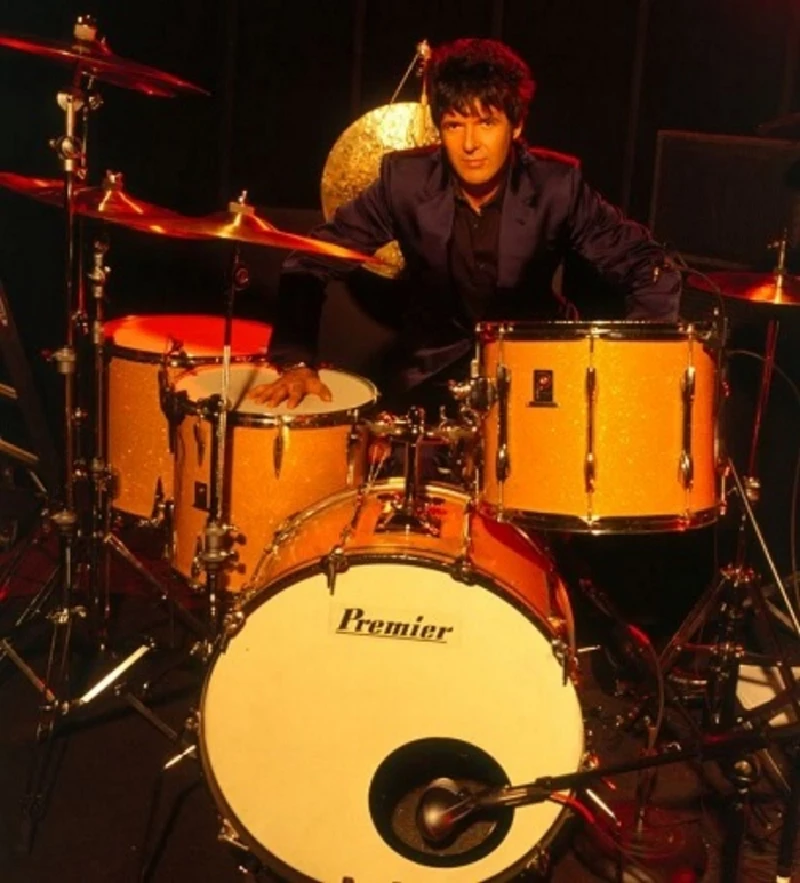
intro
Blondie drumer Clem Burke chats to John Clarkson about his new super group the International Swingers and Blondie's forthcoming album, 'Ghosts of Download'
Clem Burke is the drummer with Blondie. One of the three remaining founding members of the infamous New York group along with vocalist Deborah Harry and guitarist Chris Stein, Clem Burke first joined Blondie under its short-lived original name of Angel and the Snakes in 1975. He played in Blondie throughout its original incarnation, in their early career as one of the crop of new wave/punk bands that arose out of the tiny CBGB music club in Manhattan, and then as superstardom took off on hits such as ‘Hanging on the Telephone’, ‘Sunday Girl’, ‘Heart of Glass’, ‘Call Me’, ‘Atomic’ and ‘Rapture’. He also appeared on all of their six initial albums, ‘Blondie’ (1976), ‘Plastic Letters’ (1978), ‘Parallel Lines’ (1978), ‘Eat to the Beat’ (1979), ‘Autoamerican’ (1980) and ‘The Hunter’ (1982). Since Blondie reformed after a fifteen year hiatus in 1997, Clem Burke has remained an active participant, performing on the single ‘Maria’ and also on their subsequent albums, ‘No Exit’ (1999), ‘The Curse of Blondie’ (2003) and ‘Panic of Girls’ (2011). Burke – one of the hardest-working and in-demand drummers in rock – when Blondie have both been on and off the road has always worked with other musicians, and has performed as well with artists as diverse as Iggy Pop, Hugh Cornwell, Pete Townshend, Joan Jett, Bob Dylan, Nancy Sinatra and the Eurythmics. During the time that Blondie was disbanded and between 1990 and 2004, Burke was the drummer in the power pop/new wave group the Romantics. He was also briefly a member of the Ramones, playing under the name of Elvis Ramone two gigs with them in 1987, and then a one-off cancer benefit gig with them in 2004 after vocalist and guitarist Joey and Johnny Ramone had both died from the disease. Clem Burke is currently also a member of the International Swingers, a super group which formed last year and also includes vocalist/guitarist Gary Twinn (Twenty Flight Rockers), Sex Pistols bassist Glen Matlock and guitarist James Stevenson (Chelsea/Generation X/Gene Loves Jezebel). The International Swingers originally started out as a covers band covering each other’s material, but now have begun recording and writing their own material. Their song ‘Gun Control’ - an attack on America’s gun laws – and its hard-hitting, frank accompanying video which focuses on the aftermath of several high school shootings has attracted much media interest. Pennyblackmusic caught up with Clem Burke in London the day before the International Swingers’ debut British gig there at the Lexington, and just a few days after the end of the European leg of a Blondie tour. We spoke to him both about his new group and also Blondie’s forthcoming tenth studio album, ‘Ghosts of Download’. PB: The International Swingers seems to have come together very organically. Initially you got together to play just few shows, and you seem to have just kept going since then. Is that the way it has evolved? CB: Yeah, the name itself, the International Swingers, says it all really. Everyone lives in different parts of the world and often in different time zones. I have just arrived in the UK from playing some shows with Blondie in Belgium. Gary has come over from L.A. James Stevenson was in Portugal doing a show with Gene Loves Jezebel, and Glen Matlock was already in London. It is a thing that does come together quite organically. It is just based on everyone’s schedules. We are mates from back when. As I have said before in previous interviews, no one answered an ad to be in this band. We have known each other for quite some time. We have all worked with each other in different capacities, but never all in the same place at the same time. PB: You and Glen were in another band, Slinky Vagabond. Does that band still exist? CB: No, that was a project that fell beside the wayside. The singer Keanan Duffty is actually professor at the Institute of Art in San Francisco ,and he is a clothing designer. He didn’t really have the time to be in a band, and Blondie also kicked off again. That was a failed attempt at a band that did actually have a lot of potential. There is an album there that should be released somehow, but with the current state of the music business that is not that easy to do. I guess that we could release it independently. I also toured with Glen. We supported Hugh Cornwell from the Stranglers in the States, and I played in Glen’s backing band. Being a musician and playing with a lot of people, that collaborative process, it is something that I am really interested in. PB: How long have you known Glen for? Is it since the seventies? CB: From the time of the punk rock wars. Yeah! (Laughs) PB: What about the other guys? Have you known them for a long time as well? CB: Yes, Gary Twinn and I actually had a little rockabilly band called the Honeydrippers in L.A. quite some time ago. James and I had known each other again since the seventies, but we had never worked together until the International Swingers. PB: ‘Gun Control’ was written by Gary. It makes a very persuasive and sensible argument for the tightening of gun laws, particularly in America. Is that something that you would personally agree with? CB: I do agree with gun control. I always make the analogy that the TSA, the immigration authorities in the United States, have something that you apply for called Global Entry. Essentially it is a full background check. If you clear the background check to Global Entry, you are able to immigrate back into the United States and as an American citizen much more easily. You have to provide the background check though. If someone wants to have guns in their possession, then they should be able to subscribe to a similar full background check, which varies from state to state, and I think that is the problem. There should be a national law that oversees that. People have assault rifles and all kinds of crazy things in the States. It is not a good thing. I am into the idea of prevention with that. When Gary Twinn came up with the lyrics for the music which we had all been working on, we all related to it immediately. PB: How have people reacted to that song? Has there been a lot of negativity towards it or has it been mainly positive? CB: It has been mostly positive. People that are following us on social media have been very positive about it. On a purely mercenary level, we were hoping for more of a negative reaction in L.A. or somewhere like that. A bit of controversy is always a good thing (Laughs). I did send it out to a couple of people who unknown to me were members of the National Rifle Association and I was kind of surprised at their response, but overall it has been very good. It has been the message that we want to send out, and so we stand by it. The world is a crazy place. PB: ‘FBI’, another of the International Swingers’ songs, is about to quote the lyrics living in “a state of paranoia and fear.” You have described yourself in the past about not being a political person, but these seem to be very political songs. CB: I do vote. I voted for President Obama. I just don’t think that I am actively and vocally particularly political. These songs, however, do reflect modern times. PB: The International Swingers originally described themselves as a covers band who covered each other’s songs. How much of your material these days consists of original material and how much of it of covers? CB: I would say that we were about 60/40 these days, 60 percent original and 40 percent covers. We want to maintain that. We are really interested in the roots of rock and roll as well - Eddie Cochran and Buddy Holly and people like that. We throw in songs from the likes of them once in a while as well. PB: If you were going to go to an International Swingers gig, what could you expect from it? CB: You could expect a rock and roll band on stage that was basically having a good time. There is a bit of a repartee going on and dialogue on stage amongst the four of us. Sometimes we take the piss out of each other or talk about what we did during the day. Once in a while we have been known to just stop the music, and to have a Q and A and just chat with our audience. It is really fun. You just don’t know what to expect and what the audience is going to give back to you. Despite the subject matter of some of our material, the idea is that you are not going to go and see some kind of po-faced rock and roll band taking themselves very, very seriously. We are all proud of our history and what we have done, and people who come to our shows seems to respect that and acknowledge that. With me having been in such a successful band as Blondie and Glen having been in the Sex Pistols, both of which had very strong front people, it has been a chance as well to let people know a little more what we are all about. PB: It seems like there is an anything goes policy with the International Swingers. Do you see yourselves as a band that takes a lot of risks? CB: We are all very secure as musicians. We are not kids anymore. First and foremost we do want to have a good time and we, therefore, do want to take some risks so that we can have that fun. I see it more though about being ourselves and doing what comes naturally. For me live performance has always been improvisational. I don’t really like to prescribe to a completely fixed set list or having to play a song the same way each time. I like the jazz aspect of it or the theatre aspect of it in which there is improvisation involved, and also the stand-up comedy aspect of it, as we have been doing in the International Swingers. A lot of being in a rock band can be quite funny. If something goes a little pear-shaped, then at this stage in our career we have learnt to laugh about it. With the Swingers, we have had the van break down in the middle of nowhere while we were going to some strange gig on a Tuesday night. We managed to have a laugh about it though. PB: You have been posting samples of the International Swingers’ debut album online and as an early taster of what is to come. When do you hope to put the album out? Do you have a date for it? BC: We don’t have an exact date, but maybe the spring time of next year. A couple of things have come up. One of them is that James Stevenson is going off with the Cult for four months. I am also going off with Blondie in the States for another two months starting in September. The nature of the band is that everyone just goes off and does their own thing in various parts of the world and then we all come together, whether it be in Los Angeles or New York or London or Cleveland, Ohio. In the mean time we are continuing to write. With the internet, it is much easier to keep in touch and share ideas. It is really a global village, and I guess you could say that we are the product of the global village. You don’t necessarily have to be all in the same place at the same time. Part of being in this band is that the members go off and do other things and then come together as the International Swingers. PB: There was a four year gap between when ‘No Exit’ came out in 1999 and ‘The Curse of Blondie’ in 2003. Then there was another eight years between ‘The Curse of Blondie’ and ‘Planet of Girls’ in 29o1. The new Blondie album ‘Ghosts of Download’ has come together very quickly and in less than two years. Why has it come together quite so rapidly? CB: Everyone is in a very creative state of mind. We are also all getting a bit older and realising that time is not what it once was for each of us. There were a lot of things that went on with ‘The Curse of Blondie’ that prevented it from coming out, and one of which was the whole thing that went on with 9/11. We were in the middle of recording that when the World Trade Centre tragedy happened, and then we had some problems with the record company after that as well. We are in a really good place now with Blondie. We just did a UK tour and some shows in Europe, and they all sold out and the response was amazing. The response to the new songs was great, and we are planning to do some more touring. Hopefully it will all pan out, and there will be enough downtime for the Swingers as well. PB: On your recent European tour there were six songs from ‘Ghosts of Download’ in a nineteen or twenty song set. It surprised a lot of fans as previous UK and European tours since you have got back together have focused more on the classic hits. CB: Well, actually prior to the release of the first set, when we first got back together with ‘No Exit’, we did do a UK tour in which we played some of the new record which I think did help us back then. The only thing I would comment on and from a fan’s point of view –and I am a huge Blondie fan – is that I would have liked to see the band play for another twenty minutes or so, and put some more of the classic Blondie songs in and also incorporate some of the new material in at the same time. The new songs seemed to be going down well and there was enough of the classic material for the audience to enjoy. but I would perhaps have liked a little more. PB: You have actually been back together in the second incarnation after ‘No Exit’ twice as long as you were in the first incarnation. Why do you think it has lasted so long this time? CB: Things are in a better place business wise, and we are also older and hopefully wiser. The nucleus of the band, the genesis of the band, began with the three of us - Chris, Debbie and myself. Jimmy Destri (keyboardist, 1975-1982 and 1997-2003-Ed), who contributed ‘Maria’, is a great songwriter but just wasn’t able to get a hold on his personal problems and being able to work in the band context with the four of us. It is a weird balance because Chris and Debbie were together a long time as lovers as well as colleagues and friends and then you have got me as well, but it seems to work between the three of us. The three other guys that we have currently in the band are all great musicians. Leigh Foxx who plays bass has played in Debbie’s solo bands, and he has been a mate of mine for a long time. He is a wonderful guy. The two young guys in the band Matt and Tommy are both really good musicians, and it seems to just come together. PB: Matt (Katz-Bohen, keyboards- Ed) and Tommy (Kessler, guitar- Ed), have been there two years and three years respectively. Have they changed the dynamics of the band a lot? CB: It has enabled us to do some different things with the material. For instance with ‘Atomic’ when we do that live, Tommy gets the chance to rock out with his guitar solo at the end of that. It is strange having Tommy in the band in some ways as he is from Oklahama originally, and he is coming from a whole other perspective and aesthetic. It has been a learning curve for him. We are all enjoying seeing him develop. Matt in contrast is a hardcore New Yorker. He was able to fall straight in with regard to our outlook and our aesthetic. He can understand that. He was great friends with a mate of Debbie’s, and that is how he came into the band. To go back to that thing about how a band comes together, I met Debbie and Chris through an ad in ‘The Village Voice’ and old-fashioned social media, but after that everyone else came in through personal contacts. Our old bass player Gary Valentine was a mate of mine at school. Frank Infante, who was our guitarist in the 1970s and early 1980s, was also a mate of mine, and then Nigel Harrison, who took over from Gary, came into the band through friends. PB: Why do you think you achieved such popularity in the 70s? You were always slightly ahead of the game before anyone else. You gave punk a pop element before anyone else. You got into disco and rap before other people did. Do you think that it was because of that? CB: It is good that you mentioned the 70s because we always seem to get lumped into being an 80’s band. We were definitely predecessors of what happened in the 80s, and ‘Heart of Glass’ and songs like that were very influential on what went on after it. In the 70s our image obviously had a big part to play in us getting our foot in the door, but the songs are what endure. They are the legacy of the band. If you were going to ask why the band is popular today and why we sell out shows, then the main reason for that would be the music because the image has inevitably had to take a back seat at this point in our career. Interestingly enough the internet, and for example You Tube, has been a tremendous help to bands like us because younger people are able to go back and see what the band is about and what was going on back then, and then once they have realised that we are still around go and see us get the real thing now. We were lucky back in the 70s to be involved with the whole CBGB’s thing. If that whole scene hadn’t been going on, we would have had a much tougher time achieving that notoriety. We were influenced by Television, by Patti Smith, by the Ramones, Talking Heads, all the other different bands that played there. Everyone was influenced by each other sublimely, and either by ripping people off or taking their ideas and just exploring them in another way. CBGB’s was a workshop for us all really. It wasn’t being about picture perfect on stage. Someone might be wearing an ugly shirt, and somebody might be hitting a bad note. That was all part of the process. We are able to do it in public. You could make an analogy to what actors or comedians do before they workshop something before taking it to the main stage, and New York and CBGB’s at the time was a very covert, underground thing. It wasn’t a mass media at all. It was a room full of pace makers and fellow musicians that were able to work out there what they were doing and to get some kind of feedback for it as well. We never wanted to be too hip for the room. We always were about being played on the radio, about wanting commercial success if possible. We weren’t about being an underground band. We have always walked that tightrope between being hip and commercial at the same time. We had seen the way in which Andy Warhol brought his whole art and commerce thing together, and that was an influence on us as well. PB: You said that you were touring in the States in September with Blondie. What else have you got planned for the rest of this year? CB: I am working on a book. It is an autobiography in one sense as I am writing about myself, but at the same time it not about my life. It is more anecdotal and is a kind of descriptive narrative about various times and places, what colour the wallpaper was and what cigarettes I was smoking and things like that. There are other things coming up. I have been working on a couple of other projects. I was going to go back out on tour with Hugh Cornwell, but unfortunately his tour begins the last few days of the Blondie tour, so the timing was off for that. I work with Nancy Sinatra quite a bit. She is still trying to put a benefit together for Hurricane Sandy in New Jersey, so hopefully that might come together. It is always about the process for me, about collaborating with other people and continuing to develop as a musician. PB: Thank you. ‘Ghosts of Download’ is due out in the autumn.
Picture Gallery:-
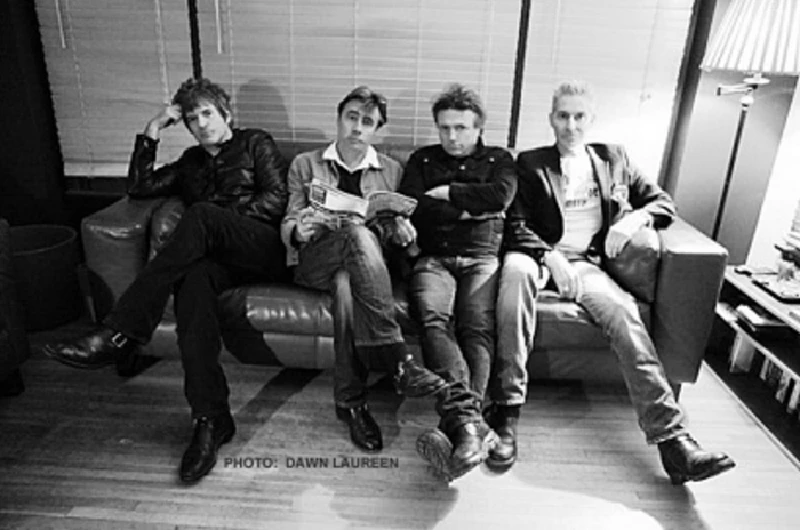
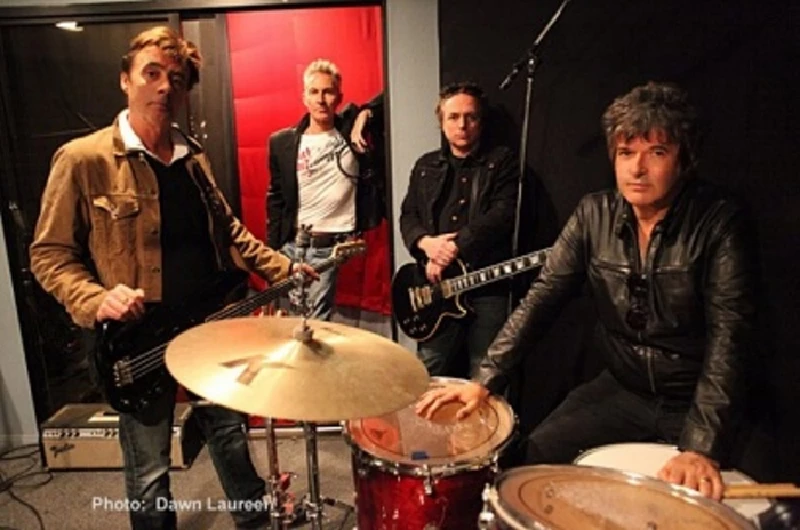
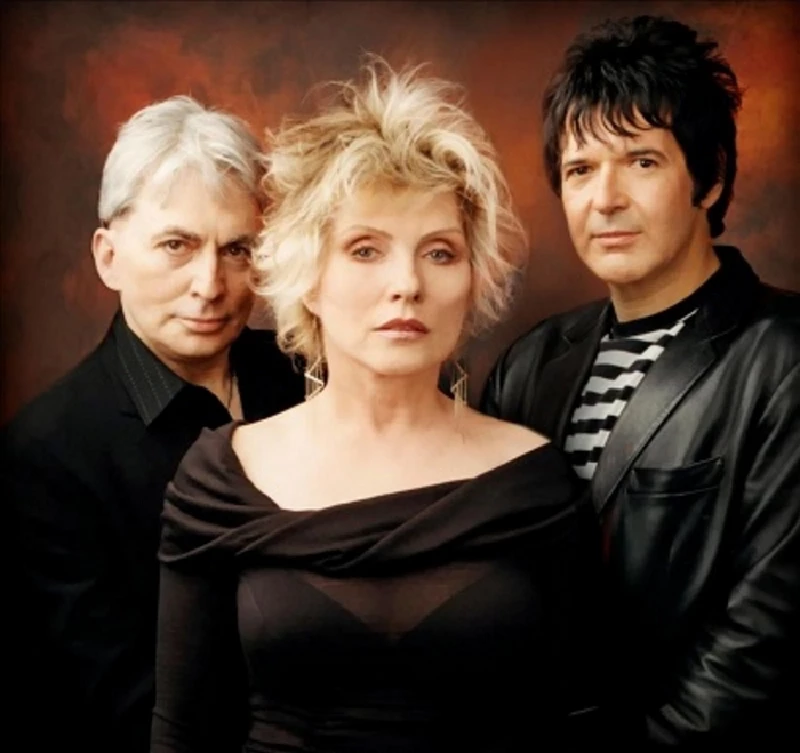
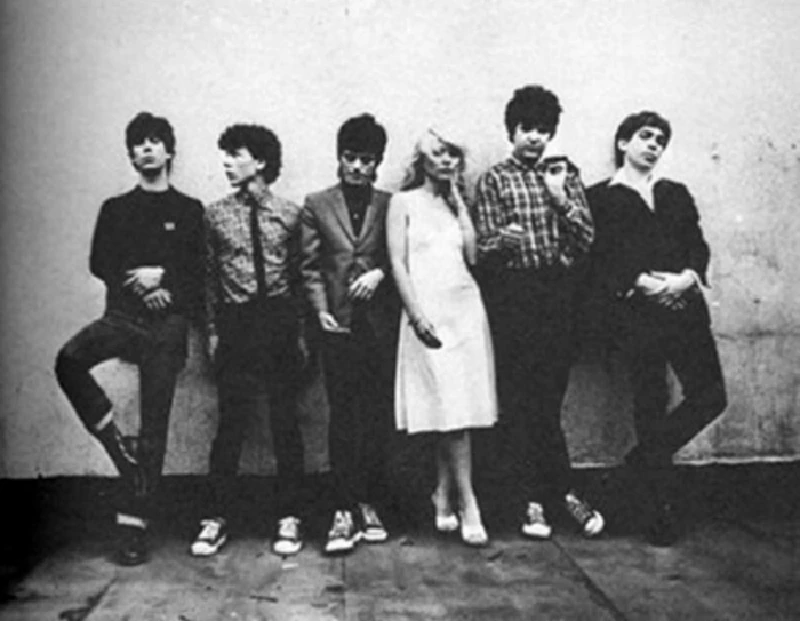
most viewed articles
current edition
Spear Of Destiny - InterviewRobert Forster - Interview
Fiona Hutchings - Interview
When Rivers Meet - Waterfront, Norwich, 29/5/2025
Carl Ewens - David Bowie 1964 to 1982 On Track: Every Album, Every Song
Brian Wilson - Ten Songs That Made Me Love...
Chris Wade - Interview
Pistol Daisys - Waterfront, Norwich, 29/5/2025
Credits - ARC, Liverpool, 17/5.2025
Gary Numan - Berserker
previous editions
Heavenly - P.U.N.K. Girl EPBoomtown Rats - Ten Songs That Made Me Love....
Barrie Barlow - Interview
Manic Street Preachers - (Gig of a Lifetime) Millennium Stadium, Cardiff, December 1999
Oasis - Oasis, Earl's Court, London, 1995
Dwina Gibb - Interview
Pixies - Ten Songs That Made Me Love...
David Paton - Magic: The David Paton Story
Chuck Prophet - Ten Songs That Made Me Love...
Sound - Interview with Bi Marshall Part 1
most viewed reviews
current edition
Peter Doolan - I Am a Tree Rooted to the Spot and a Snake Moves Around Me,in a CircleGarbage - Let All That We Imagine Be The Light
Vinny Peculiar - Things Too Long Left Unsaid
Little Simz - Lotus
John McKay - Sixes and #Sevens
Suzanne Vega - Flying With Angels
HAIM - I Quit
Morcheeba - Escape The Chaos
Vultures - Liz Kershaw Session 16.06.88
Billy Nomates - Metalhorse
Pennyblackmusic Regular Contributors
Adrian Janes
Amanda J. Window
Andrew Twambley
Anthony Dhanendran
Benjamin Howarth
Cila Warncke
Daniel Cressey
Darren Aston
Dastardly
Dave Goodwin
Denzil Watson
Dominic B. Simpson
Eoghan Lyng
Fiona Hutchings
Harry Sherriff
Helen Tipping
Jamie Rowland
John Clarkson
Julie Cruickshank
Kimberly Bright
Lisa Torem
Maarten Schiethart